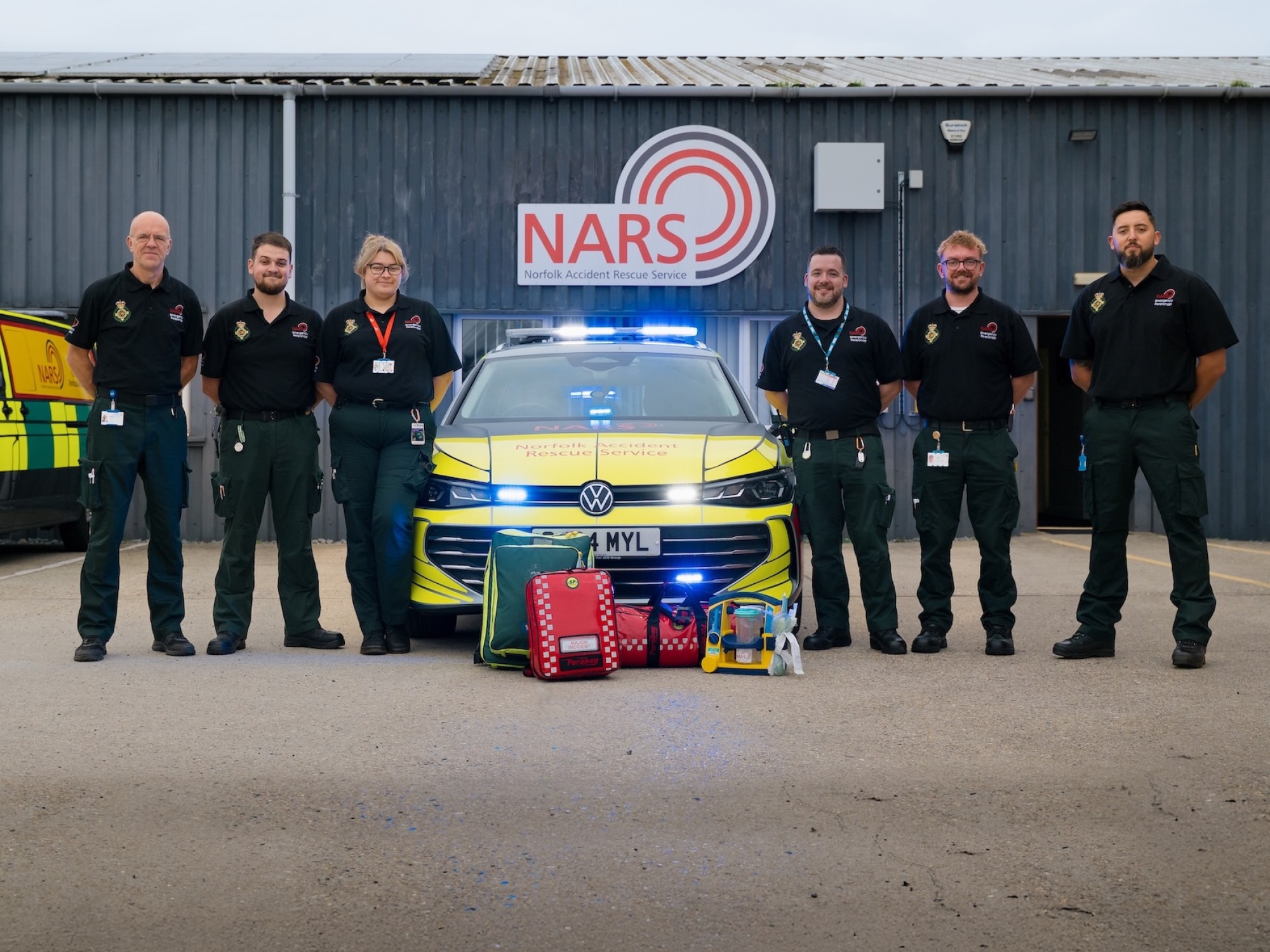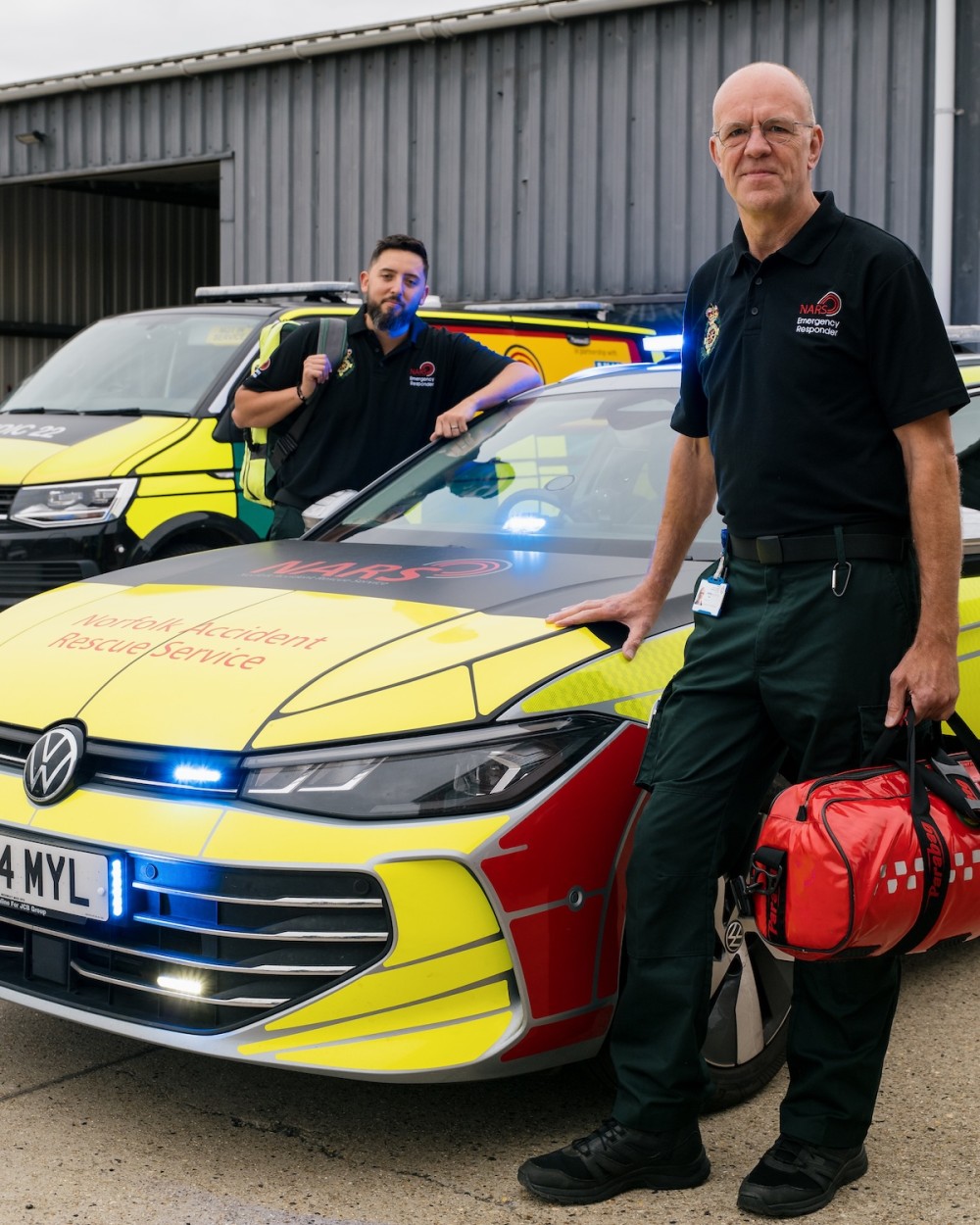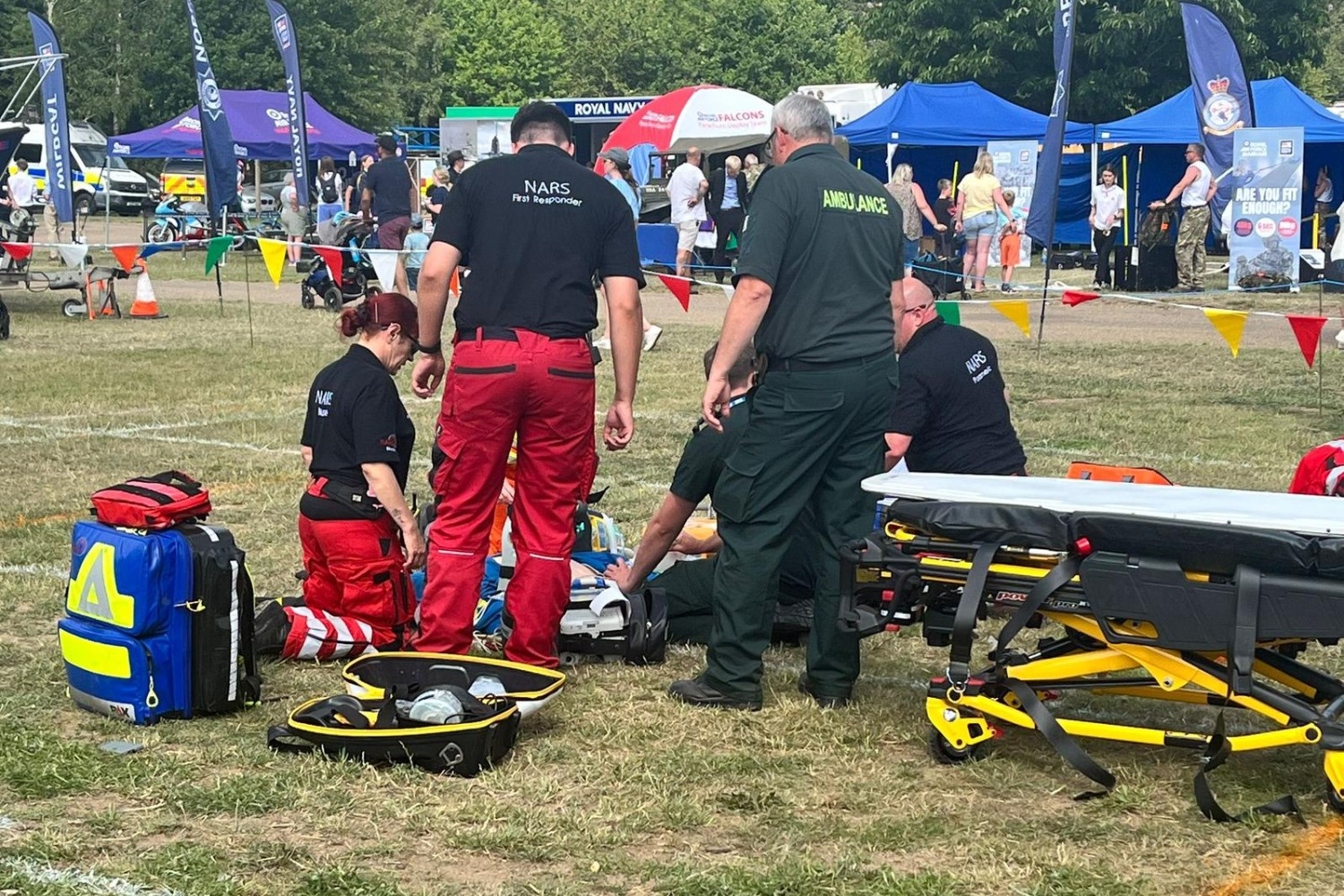
Norfolk’s unsung heroes
Saving lives across Norfolk, NARS has been our homegrown emergency lifeline for over five decades
Picture Norfolk in the 1970s: cars built with little regard for safety, serious road traffic collisions occurring with alarming frequency, and ill-equipped general practice doctors summoned to attend devastating crashes across the county. It was from this that the Norfolk Accident Rescue Service (NARS) was born in October 1970, established by 71 dedicated doctors who recognised the critical importance of immediate medical care at emergency scenes.
Fast-forward 55 years, and that pioneering spirit lives on in a remarkable team of around 50 volunteers who continue to race across Norfolk’s roads, providing emergency care in our communities. Working in partnership with the East of England Ambulance Service, NARS has evolved from those early GP volunteers into an expert-led medical charity armed with some of the most advanced life-saving technology available.
The organisation’s skilled volunteers include off-duty doctors, nurses, paramedics and first responders, who all give their time freely. The team operates from cutting-edge critical care vehicles, carrying automated compression devices like the Lucas machine (which delivers chest compressions more effectively than human hands), ventilators for patients requiring breathing support and high-grade monitoring equipment that rivals any hospital emergency department.
“Our core mission has remained unchanged from day one: to save lives in Norfolk,” explains Steve Maddams, a member of NARS’ senior leadership team. “We attend life-threatening medical emergencies, including cardiac arrests, road traffic collisions, traumatic incidents like falls from construction sites, chest pains, seizures, diabetic emergencies, allergic reactions and more.”
With borderless coverage across Norfolk, NARS attends over 1,600 emergency calls each year. The organisation operates five vehicles, strategically positioned to provide the fastest possible response times across the county. “First responders and paramedics typically handle around six calls during a 12-hour shift,” Steve explains. “The critical care teams are reserved for the most serious incidents and average two to three calls, although this can vary dramatically.”
In King’s Lynn, Geoff Roberts experienced the life-saving impact of NARS first hand. One ordinary evening, Geoff went to bed feeling perfectly well. At two o’clock in the morning, his wife Dawn was woken by an unusual sound. “He made a funny noise, and when I turned him over, his eyes were wide open - just staring,” Dawn recalls. Geoff had suffered a cardiac arrest and stopped breathing.

Dawn immediately called 999, and despite never having performed CPR before, she was expertly guided through the procedure by the emergency call handler. Meanwhile, NARS volunteer Ryan picked up the emergency dispatch. “Ryan just came in like a hero and rushed up the stairs,” Dawn recalls. Within minutes, Ryan was providing advanced cardiac care, and Geoff’s life was saved.
“I just can’t thank NARS enough,” Geoff reflects. “Before all this, I didn’t even know NARS existed. They’re all voluntary, with professional jobs, and just do this in their own time. Without them, I wouldn’t be here.”
The volunteers who make NARS possible come from diverse backgrounds. Steve, an energy brand specialist, became involved after his young son suffered a febrile convulsion during a family holiday - a frightening experience that left him feeling helpless and determined to learn life-saving skills. His NARS partner Chris, a keen cyclist and business owner, joined after witnessing a serious cycling accident, wanting to ensure he could provide proper assistance in emergency situations.
Alongside responding to serious incidents, NARS is committed to equipping as many people in the Norfolk community as possible with free CPR and defibrillator training. In the UK, the survival rate for out-of-hospital cardiac arrests is currently less than 10%, compared to 25% in Holland, where CPR training is more widespread. “CPR involves chest compressions and rescue breathing to keep someone alive until medical help arrives,” Steve says. “You never know when you might need it, so we want to make sure everyone has this life-saving skill.”
Despite their professional-grade capabilities, NARS runs entirely on volunteer dedication and public generosity. The organisation requires £9,000 a month to maintain operations, funding everything from vehicles and uniforms to the sophisticated medical equipment that enables their work.
The charity benefits tremendously from the support of local business patrons like Adrian Flux and Potter’s Resorts, who offer both essential donations and commercial expertise that helps secure the organisation’s future sustainability.
“We actively seek support from local businesses who might consider adopting us as their charity of the year,” Steve shares. “As Norfolk’s homegrown emergency service, we receive no government funding and get significantly less attention than larger, more recognised charities.”
Every contribution helps keep NARS on the frontline, from bake sales and quiz nights to online donations and sponsored skydives.
More than half a century on, NARS remains Norfolk’s steadfast safety net. Whether responding to a cardiac arrest in a busy supermarket, attending a serious collision on a country lane or teaching CPR skills that could one day save a life - when seconds count, they’re already on their way.

